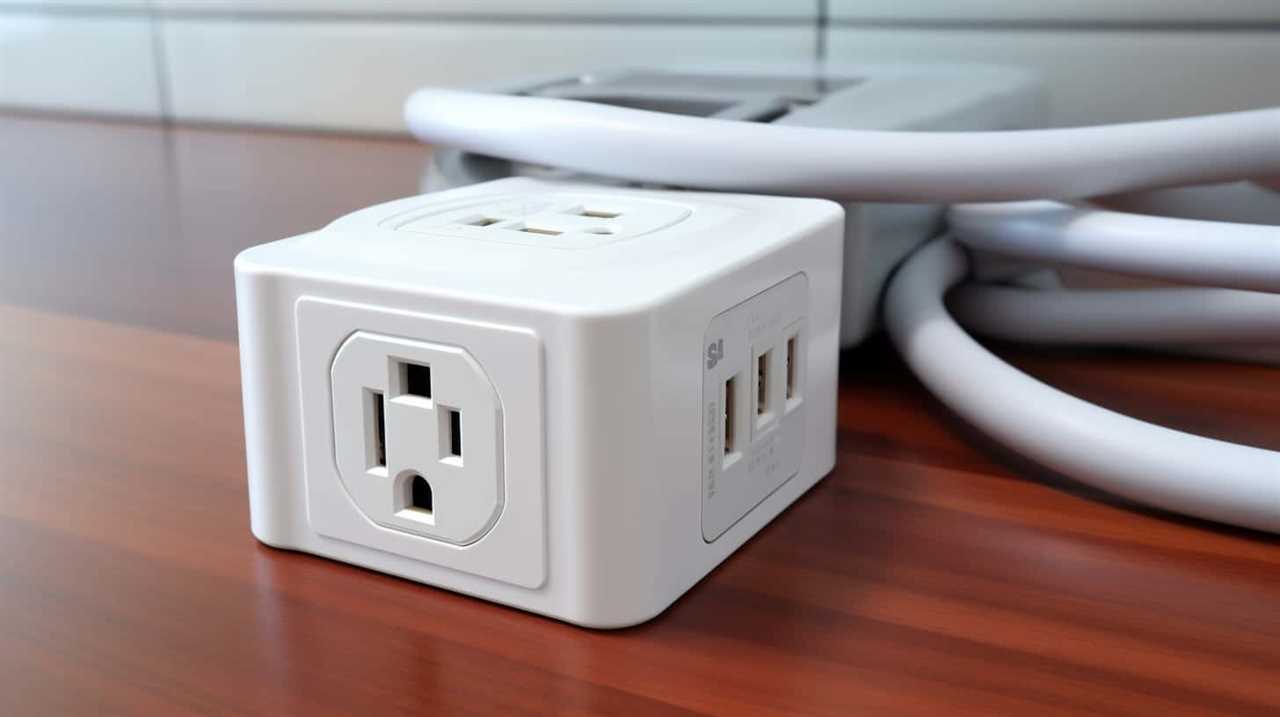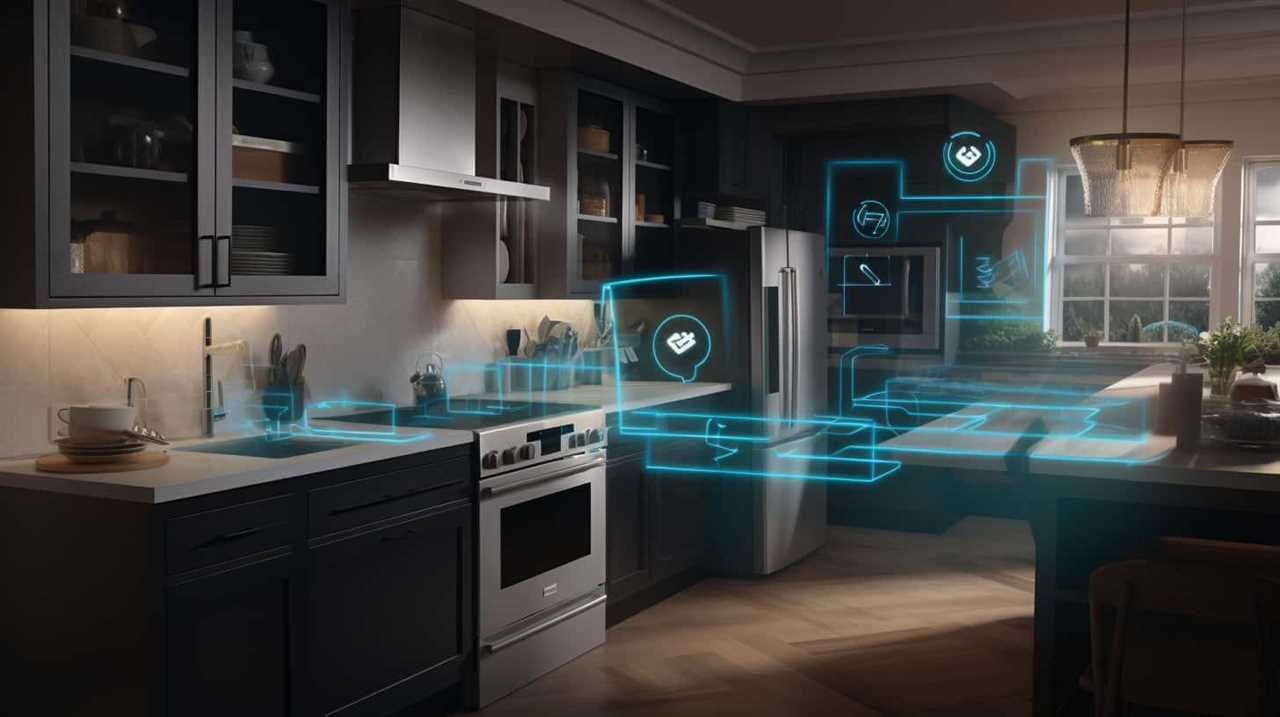When upgrading your home, it is crucial to differentiate between regular expenses and capital improvements.
Translated text to English (United States): When upgrading your home, it is crucial to differentiate between regular expenses and capital improvements.
While new appliances may enhance the functionality and aesthetics of your property, determining whether they qualify as capital improvements can have significant financial implications.
In this article, we will explore the definition of capital improvements and delve into the factors that influence the classification of appliance upgrades.
Additionally, we will discuss the potential tax implications and impact on home value associated with these upgrades.

By comparing appliance upgrades to other capital improvements, we can provide insights on how to maximize your investment.
Whether you are a homeowner or a real estate investor, understanding the categorization of new appliances as capital improvements is essential for making informed financial decisions.
Key Takeaways
- New appliances can be considered capital improvements if they meet specific requirements.
- Factors such as appliance depreciation rules, replacement frequency, and lifespan impact classification.
- Energy-efficient appliances may be eligible for tax credits or deductions.
- Upgrading appliances significantly increases home value and attracts potential buyers.
Definition of Capital Improvements
When considering the classification of new appliances, it is important to understand the precise definition of capital improvements.
In the context of taxes, capital improvements refer to substantial upgrades made to a property that increase its value, extend its useful life, or adapt it for a new use.

New appliances can potentially be considered capital improvements if they meet these criteria. However, it is essential to note that not all appliance upgrades will qualify for tax deductions.
To be eligible, the appliance upgrade must meet specific requirements set by the tax authorities, such as energy efficiency standards or being necessary for medical purposes.
Understanding the distinction between ordinary repairs and capital improvements is crucial for homeowners seeking to maximize their benefits and deductions.
With this in mind, let’s explore the characteristics and advantages of appliance upgrades in further detail.

Understanding Appliance Upgrades
To further explore the characteristics and advantages of appliance upgrades, let us delve into their potential as capital improvements. Upgrading appliances can be a smart investment for homeowners, as it not only enhances the functionality and aesthetics of their homes but also contributes to the overall value of the property. One key factor to consider when deciding to upgrade appliances is the appliance lifespan. Newer appliances often have longer lifespans compared to older ones, reducing the need for frequent replacements. Additionally, maintenance costs can be significantly reduced with newer appliances, as they are generally more energy-efficient and require less frequent repairs. This can result in long-term savings for homeowners.
To illustrate the potential savings, consider the following table:
| Old Appliance | New Appliance |
|---|---|
| Higher maintenance costs | Lower maintenance costs |
| Shorter lifespan | Longer lifespan |
| Less energy efficient | More energy efficient |
Factors to Consider for Capital Improvement Classification
When determining whether new appliances count as capital improvements, there are several factors to consider.
One important factor is the appliance depreciation rules, which can impact the classification and tax implications of the upgrade.

Additionally, assessing the long-term value of the appliances is crucial in determining if they meet the criteria for capital improvements.
Appliance Depreciation Rules
Appliance depreciation rules play a crucial role in determining the classification of new appliances as capital improvements. When considering whether an appliance should be classified as a capital improvement, two key factors to consider are appliance replacement and appliance lifespan.
Appliance replacement refers to the frequency at which appliances need to be replaced due to wear and tear or technological advancements. If an appliance is expected to be replaced frequently, it is less likely to be classified as a capital improvement.
Appliance lifespan, on the other hand, refers to the estimated duration for which an appliance is expected to remain functional. If an appliance has a long lifespan, it is more likely to be classified as a capital improvement.

Tax Implications for Upgrades
Tax implications for upgrades depend on various factors that determine the classification of new appliances as capital improvements. When considering the tax deductions and financial planning related to these upgrades, there are two key factors to take into account:
- Nature of the improvement: The IRS considers an expense as a capital improvement if it enhances the value of the property, prolongs its useful life, or adapts it to a new use. Upgrades that meet these criteria may be eligible for tax deductions.
- Timing of the upgrade: The timing of the upgrade is also crucial. If the upgrade is made shortly after the property is acquired, it may be treated as part of the property’s basis. On the other hand, if the upgrade is made after the property has been in use for a while, it may be classified as a repair expense rather than a capital improvement.
Understanding these factors is essential for proper financial planning and maximizing tax benefits.
Now, let’s move on to assessing the long-term value of these upgrades.
Long-Term Value Assessment?
To properly assess the long-term value of upgrading appliances, it is important to consider several factors that determine their classification as capital improvements.

One crucial factor is the long-term cost analysis. While new appliances may require an initial investment, they can potentially save homeowners money in the long run through improved energy efficiency and reduced maintenance costs.
Additionally, upgraded appliances can enhance the overall appeal and functionality of a home, which can positively impact its resale value. Homebuyers often prioritize modern, energy-efficient appliances, which can make a property more attractive and potentially increase its market value.
Therefore, when evaluating whether new appliances should be classified as capital improvements, it is essential to consider the potential long-term cost savings and the impact on home resale value.
Tax Implications of Appliance Upgrades
Upgrading appliances can have significant tax implications for homeowners. When considering the tax deductions related to appliance upgrades, homeowners should be aware that not all expenses may be eligible for deductions.

Here are two key factors to consider:
- Tax deductions:
- Energy-efficient appliances: Homeowners may be eligible for tax credits or deductions when they purchase energy-efficient appliances that meet specific criteria set by the government.
- Repairs and maintenance: While appliance repairs and maintenance costs are generally not tax-deductible, there may be exceptions for certain situations or if the repairs extend the lifespan of the appliance.
Understanding the tax implications of appliance upgrades is crucial for homeowners seeking to maximize their deductions and save on taxes.
Now let’s explore how these upgrades can impact the overall value of a home.
Impact on Home Value
Replacing appliances can have a significant impact on the value of a home. When considering a home renovation, upgrading appliances is often a wise investment.

Not only do new appliances enhance the overall aesthetic appeal of a property, but they also offer improved functionality and energy efficiency. These factors can attract potential buyers and increase the desirability of a home, ultimately leading to a higher selling price.
The return on investment for appliance upgrades varies depending on factors such as the quality of the appliances, the market demand, and the overall condition of the property. However, studies have shown that homeowners can expect to recoup a significant portion of their investment when they upgrade their appliances.
Therefore, replacing old appliances can be a worthwhile endeavor for homeowners looking to maximize the value of their property.
Comparing Appliance Upgrades to Other Capital Improvements
When considering capital improvements, it is essential to compare the impact of appliance upgrades with other renovation projects. Upgrading appliances can provide long term savings and enhance the overall efficiency of a home.

Here are two sub-lists that delve deeper into the topic:
- Benefits of Appliance Upgrades:
- Energy Efficiency: New appliances are designed to be more energy-efficient, resulting in lower utility bills and reduced environmental impact.
- Improved Performance: Upgraded appliances offer enhanced features and technologies, improving their functionality and convenience.
- Comparing Appliance Upgrades with Other Capital Improvements:
- Return on Investment: While appliance upgrades may not have the same impact on home value as major renovations, they can still provide a return on investment through energy savings and increased comfort.
- Cost-effectiveness: Compared to large-scale renovations, appliance upgrades are generally more affordable and require less time and effort to install.
Tips for Maximizing Your Investment in Appliance Upgrades
To maximize your investment in appliance upgrades, it is important to consider the cost versus the value that these upgrades will bring to your home.
While new appliances can be a significant expense, they can also add value to your property and make it more attractive to potential buyers.
Additionally, investing in energy-efficient appliances can lead to long-term savings on utility bills and reduce your environmental impact.

Cost Vs. Value
Investing in appliance upgrades requires careful consideration of the cost versus the value they will add to your home. Conducting a cost analysis is crucial to determine the return on investment for these upgrades. Here are some tips to help you maximize your investment:
- Research and compare prices: Look for the best deals and discounts to ensure you get the most value for your money.
- Consider long-term savings: Energy-efficient appliances may have a higher upfront cost but can save you money on utility bills in the long run.
- Evaluate lifespan and warranty: Opt for appliances with a longer lifespan and robust warranty coverage to minimize future repair or replacement costs.
By considering these factors, you can make informed decisions about which appliance upgrades will provide the greatest cost and value benefits for your home.
Now, let’s explore the energy efficiency benefits of these upgrades.
Energy Efficiency Benefits
Maximizing the energy efficiency benefits of appliance upgrades is essential for optimizing your investment. Upgrading to energy-efficient appliances not only helps to reduce your energy bills but also has a positive environmental impact by reducing greenhouse gas emissions. To help you make informed decisions, here are three key tips for maximizing your energy savings:

- Choose appliances with high energy efficiency ratings (look for the Energy Star label) to ensure maximum energy savings.
- Consider the size and capacity of the appliance, as larger appliances tend to consume more energy.
- Proper maintenance and usage can also contribute to energy savings. Regularly clean or replace filters, use appliances during off-peak hours, and adjust settings to optimize energy efficiency.
By following these tips, you can maximize your energy savings and minimize your environmental impact while enjoying the benefits of upgraded appliances.
| Tips for Maximizing Energy Efficiency Benefits | ||
|---|---|---|
| Choose appliances with high energy efficiency ratings | Consider the size and capacity of the appliance | Proper maintenance and usage |
| Look for the Energy Star label | Larger appliances tend to consume more energy | Regularly clean or replace filters |
| Use appliances during off-peak hours | Adjust settings to optimize energy efficiency |
Frequently Asked Questions
How Often Should Appliances Be Upgraded to Be Considered Capital Improvements?
The frequency of upgrading appliances to be considered capital improvements depends on various factors such as the condition of the existing appliances, technological advancements, and determining their value in relation to the property.
Are There Any Specific Appliances That Are Always Considered Capital Improvements?
Specific appliances that are always considered capital improvements include high-end kitchen appliances, such as refrigerators, stoves, and dishwashers. These appliances enhance the value and functionality of a property, making them a worthwhile investment.
Can Appliance Upgrades Have a Negative Impact on the Value of a Home?
Appliance upgrades can have a negative impact on the value of a home if they are not considered part of a long-term investment and do not align with the overall aesthetic and functionality of the property.

Do Appliance Upgrades Qualify for Any Tax Deductions or Credits?
Appliance upgrades can have tax implications, as certain energy efficient appliances may qualify for tax deductions or credits. These benefits incentivize homeowners to invest in energy efficient upgrades, leading to potential savings and improved environmental sustainability.
What Are Some Common Mistakes to Avoid When Investing in Appliance Upgrades?
Common pitfalls to avoid when investing in appliance upgrades include overlooking energy efficiency ratings, failing to consider maintenance costs, and not researching cost-effective options. It is important to make informed decisions to maximize the value of your investment.
Conclusion
In conclusion, appliances can be considered capital improvements depending on various factors such as their permanence, enhancement of property value, and tax implications.
Upgrading appliances can have a positive impact on home value and may be more cost-effective compared to other capital improvements.

One interesting statistic is that according to a study conducted by Consumer Reports, investing in energy-efficient appliances can save homeowners an average of $500 per year on utility bills.









